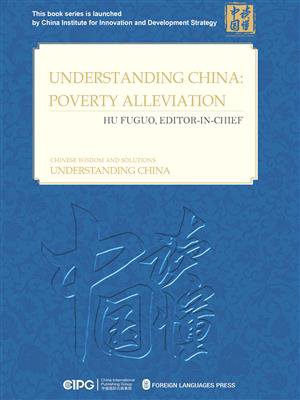1. 1921–1949: CPC's Early Exploration of Anti-Poverty Ideas
It is the CPC's unswerving goal to eliminate poverty, improve people's well-being and achieve common prosperity. From its inception to the founding of the People's Republic of China, the CPC led the people and scored remarkable achievements of enabling the Chinese nation to get rid of oppression and "stand up", while endeavoring to explore how to eradicate poverty.
After the Opium War of 1840, China was plunged into domestic turmoil with its people being ravaged by war and suffering hunger and misery, and thus reduced to an enslaved, semi-colonial, and semifeudal society. At the time, poverty in rural areas was shocking. "In coastal provinces, the income of farmers living in suburban villages was shrinking year after year, and they were facing increasingly harsh conditions every year. In inland provinces, farmers living in remote villages either had the land but were unwilling to work, or they cultivated the land but could not harvest. And they even sold their houses. Villages with dozens of households became uninhabited. Villages with hundreds of households were reduced to ones with only dozens of households." Sun Yat-sen and Mao Zedong, two great men in modern Chinese history, pointed out that the problem faced by China at that time was essentially a problem faced by farmers; China's poverty was largely manifested by the poverty of its farmers. "Because of the dual oppression of imperialism and feudalism…most Chinese people, particularly the farmers, were increasingly impoverished and eventually went bankrupt in large numbers. They suffered from hunger and misery, without political rights whatsoever."
Since the inception of the CPC, Chinese Communists have been discussing under the guidance of Marxism the problems faced by China's farmers. In 1919 before joining the Communist Party, Mao Zedong published an article titled "The Great Union of the People" in Xiangjiang Review , a journal where he served as the editor-in-chief. The text pointed out that "we must unite with farmers, who are our kind, in order to seek all kinds of interests for them." In 1922, "The First Proposition of the Central Committee of the CPC" put forward several proposals on solving the problems faced by farmers, including "overthrowing the warlords, confiscating the property of the warlord bureaucrats, and distributing their lands to poor farmers" and "making laws to protect child laborers and female workers and to ensure the health of workers at general factories." In other words, since its inception, the CPC has been upholding its underlying mission of eradicating poverty afflicting farmers and seeking benefits for all the people.
During the New Democratic Revolution, the CPC led the masses of workers and farmers, guiding and mobilizing them and other social groups through the organization of trade unions and farmers' associations to improve the production and living conditions of workers and farmers in the forms of strikes and the agrarian revolution. A farmer's son, Mao Zedong had an intuitive and profound understanding of China's impoverished rural areas. He always upheld his original and underlying idea of serving the interests of the people and was concerned about the pains of the people throughout his life and career, which had an important influence on China's thinking and practice in the fight against poverty afterwards.
The efforts made by the Party in eradicating poverty during the revolutionary war won the heartfelt support and high praise of the farmers. A Hakka folk song goes like, "Officials of the Jiangxi Soviet were diligent and brought their own solid food to work; they wore sandals to fight for the revolutionary cause during the day, and carried lanterns to visit poor farmers at night." – This melody still popular today truly reflects the fact that as early as the Jiangxi Soviet era, the Party already endeavored to eradicate poverty in rural areas. In 1943, musician Cao Huoxing wrote a song "Without the Communist Party, There Would Be No New China," which highly praises that "The Communist Party toiled for the nation. The Communist Party wholeheartedly saved China. It pointed to the road of liberation for the people. It led China towards the light. It supported the War of Resistance for more than eight years. It has improved people's lives…"
Before 1949, the Party was deeply concerned about and practically tried to eradicate poverty afflicting farmers – it on the one hand laid a solid social foundation for the victory of the War of Resistance Against Japanese Aggression and the War of Liberation, as well as the establishment of the People's Republic of China, and on the other hand,strengthened and highlighted the CPC's founding mission of serving the interests of the people, rejuvenating the Chinese nation, and eradicating poverty to improve people's wellbeing, thus laying the necessary ideological, organizational, and institutional foundation for providing more food and clothing for the poor, raising them out of poverty, and eventually enriching them.


